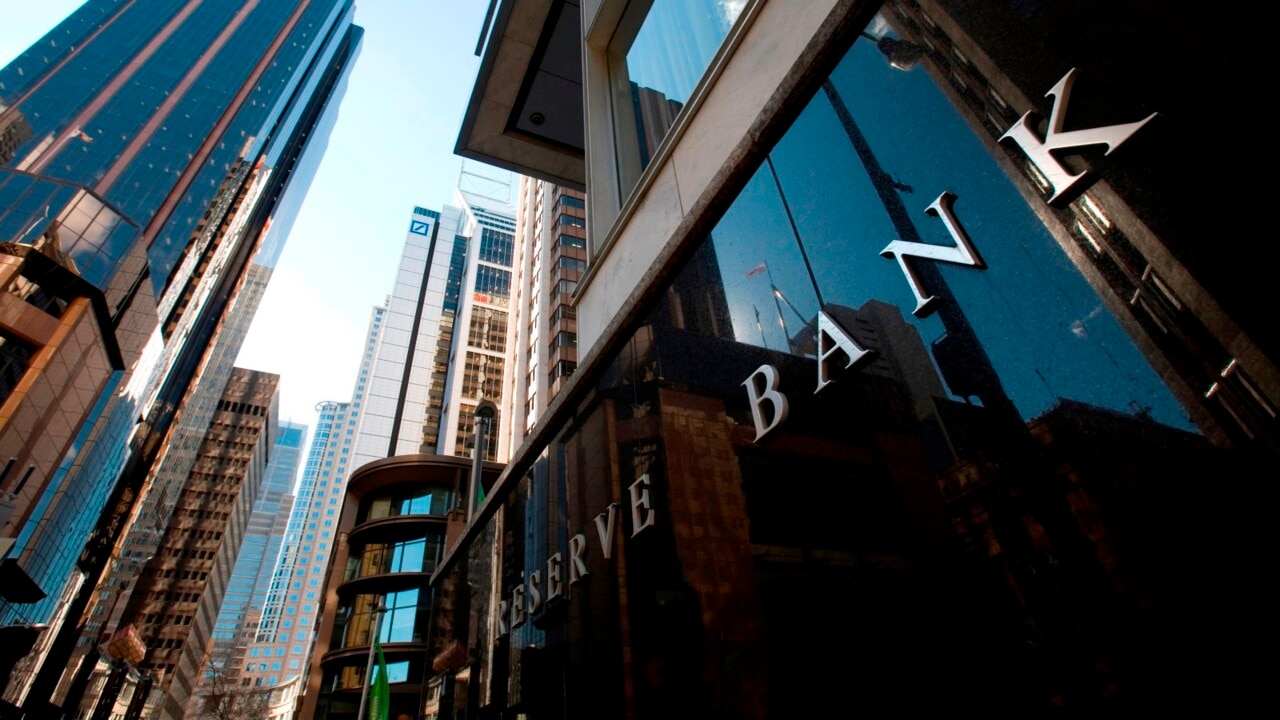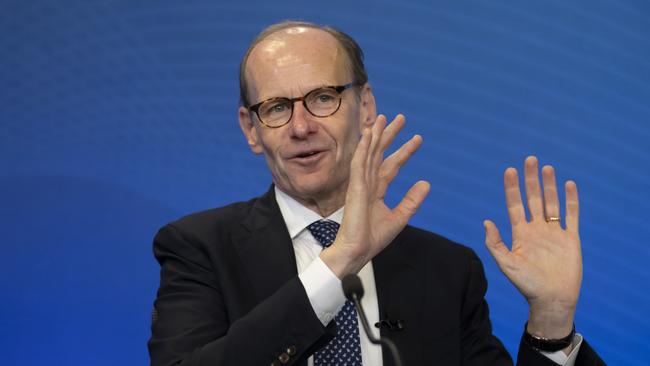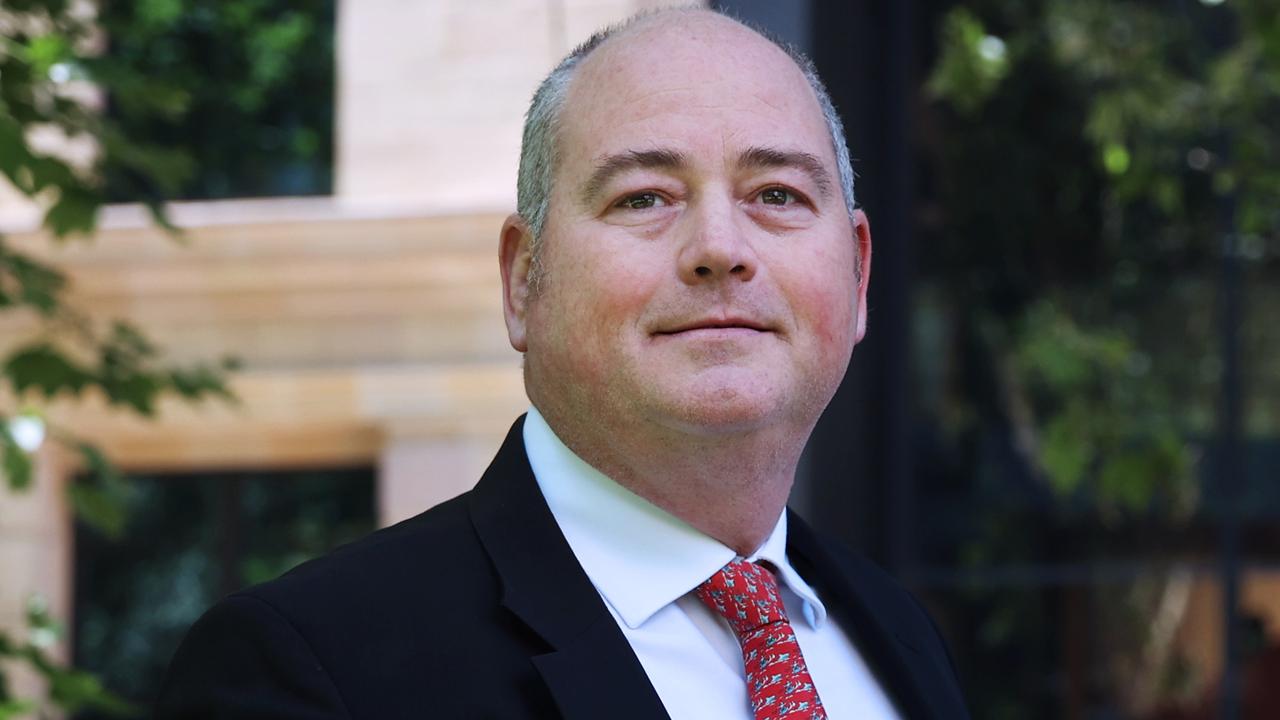ANZ wants to buy non-banking businesses
ANZ has posted a record $3.82bn profit and wants to buy non-banking businesses as it bets on capturing home loan customers.

ANZ chief executive Shayne Elliott’s buying spree is not done.
Following a record $3.82bn earnings announcement, Mr Elliott told The Weekend Australian that, regardless of whether he is allowed to proceed with the acquisition of Suncorp Bank, he wants to buy more non-banking companies to “wrap” services onto mortgage customers.
“We have an appetite over time to increase the level of our non-bank businesses. We do not have a secret list,” Mr Elliott said in an interview. “Whether we do Suncorp or not, we will absolutely want to grow our non-bank services … and as I said we would look at acquisitions.”
On Friday the bank announced a record $3.82bn profit in the first half, a higher than an expected dividend, and Mr Elliott said the bank had made progress in negotiations with regulators for the approval of its $4.9bn Suncorp Bank buyout.
It declared a better than expected dividend of 81c a share that was up from the 72c it paid a year ago. Shares rose as much as 2.1 per cent to $23.95, before closing at $23.80, with Citigroup analysts saying the result was “better than feared”.
Still, Mr Elliott warned things would be “difficult” in the next few months, with rising interest rates already causing mortgage stress for a small group of customers and triggering bank collapses in the US and Europe.
“What happens elsewhere impacts us faster than ever,” Mr Elliott said. “You can’t go from zero to 100 in record time and expect limited casualties. There may be more turmoil to come.”
Following this week’s collapse of First Republic Bank – the second-largest in the history of US banking failures – and two other lenders that mismanaged the rapid rise of global rates, woes at regional player PacWest are now spreading fear in banking circles.
That fear is pushing funding costs higher for all banks.
ANZ said net interest margins – what banks earn on loans less what they pay for funds – rose 10 basis points during the half to 1.75 per cent. That was well below the 1.83 per cent equity analysts had expected.
With local cash rates rising 375 basis points in the past year and fewer customers being able to afford a new – or even a refinanced – home loan, intense competition in the shrinking market is squeezing margins.
But the rollercoaster transformation that Mr Elliott has overseen in his seven-year tenure – including selling 30 business units, surviving the banking royal commission, and the pandemic – has resulted in a diversified bank that is balancing the pressure on earnings.
Revenues at a slimmed-down ANZ are now higher than ever.
At its institutional lending and markets business, revenues jumped 35 per cent, and risk-adjusted margins jumped 2.72 per cent to 8.37 per cent.
With intense home loan wars in Australia, having to pay more for deposits and higher funding costs due to the global banking crisis, Mr Elliott said the bank’s diversified structure would mean the pressure on mortgage margins would be offset by the contribution from institutional.

Mr Elliott said he wanted to transform it even more. Unlike its peers, ANZ was betting on capturing a higher share of the mortgage market for the long term, even if it that meant that sometimes the bank lent below its cost of capital. His plan is to them “wrap” complimentary services to those customers.
In the first half of the year, he split non-bank businesses into a separate entity that will not be regulated as a bank, copying the widely successful structure of Macquarie Group.
On Friday, Macquarie reported a record $4bn profit and $50m-plus salaries for top executives.
“We set up the non-operating holding company in order to be able to expand our offering to customers beyond just traditional banking,” Mr Elliott said.
The Australian’s DataRoom column has reported that the bank has shown appetite to buy accounting software business MYOB in the past.
When asked whether the bank would now be interested in buying it, Mr Elliott did not name MYOB specifically but said he was looking for businesses of the kind.
“We want to help people find, buy and own a home or start to grow a small business. And the services that we want to wrap into our offering in many cases are not banking,” he said.
Mr Elliot said the bank had made progress in negotiating with the Queensland government to obtain regulatory approvals for the Suncorp merger, and would respond to competition concerns raised by the ACCC next week.
“In order to get the transaction done, there would have to be an amendment to the Suncorp Metway Act, and so we are in negotiations of what that offer would look like,” he said.
The bank has made public commitments regarding the level of branches and jobs it would keep as part of the deal, and has promised to allocate $35bn of funding to support investments in Queensland.
ANZ was also preparing a response to the competition regulator’s preliminary statement on the deal and would send it in “the next week or so”, he said. The ACCC’s statement raised concerns about the impact of the deal on competition, particularly on regional areas.
Mr Elliott said mortgage stress was still low, even when he said that the next six months would be “more difficult”, with intense competition and cost-of-living pressures posing a challenge to profitability.
As of April 22, fixed loans that were in 30-day arrears after coming due by March 31 represented 0.8 per cent of the book.
Measures of mortgage stress – 90-day home loan arrears – rose slightly both in New Zealand and Australia, but continue to hover around historically low levels. Credit card arrears in Australia was trending lower in line with the lower balance of its portfolio.
Return on equity rose to 11.4 per cent, from 10.8 per cent the previous half, with its capital ratio rising to 13.2 per cent.


